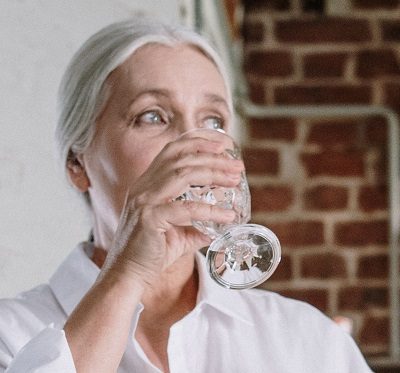

We are slowly heading towards warmer weather in the UK. As a result, the likelihood of dehydration is getting steadily higher. Dehydration can pose serious risks to our health, but our elderly loved ones are often particularly vulnerable. Therefore, it is important to know the signs of dehydration in our elderly loved ones.
Dehydration can have serious consequences on your loved one’s wellbeing. They may find themselves feeling tired or experiencing headaches. As dehydration continues, they may begin to experience dizziness. The symptoms of dehydration can increase the risk of falling. Furthermore, prolonged dehydration can cause damage to your loved one’s organs. The kidneys, especially, are at risk of damage due to dehydration.
In later life, poor mobility and less efficient bodily functions can increase the risk of your loved one becoming dehydrated. Certain conditions, too, can increase the risk. These conditions include:
It is important that your loved ones stay hydrated. This can become more challenging if they have conditions that impact their mental capacity. Loved ones with Alzheimer’s or dementia may forget to drink regularly, putting their wellbeing at risk. The following are signs of dehydration in elderly loved ones.
This may seem like an obvious one, but sometimes our loved ones won’t get themselves a drink even if they feel thirsty. Your loved one may have an empty cup on their coffee table that they keep looking at or picking up. They may have had a drink recently but still want another.
However, our loved ones can sometimes be stubborn about asking for help. If their mobility isn’t great, they may not want to walk through to the kitchen to pour another glass of water. They may wait for you to get up before asking for another drink.

When we are well-hydrated, the moisture in our bodies often gathers around the mouth. It keeps the tongue wet and lips from cracking. It also contributes to the wetness of our eyes. When your loved one is dehydrated, you may notice that their lips lose some of their colour. Their skin, too, may seem dull. Keeping the mouth hydrated is a good sign that the rest of the body is also hydrated.
If your loved one goes to the toilet and their pee is dark or strong-smelling, then it is likely they are not drinking enough. Being well-hydrated helps thin out the components of pee, making it lighter and less odorous. When your loved one is dehydrated, it is also likely that they will go to the toilet less frequently.
Your brain needs water to function properly. Roughly 80% of your brain is made up of it, after all. When we are dehydrated, our brain shrinks in on itself, pulling away from our skull. This puts pressure on nerves, which causes pain. It also impacts the ability of the brain to function. As a result, a dehydrated loved one is likely to complain about headaches and light-headedness. They may also appear unsteady on their feet whilst moving around. Dizziness, in particular, could result in a fall.
Because dehydration impacts the basic functions of the body, it is also likely to cause tiredness. Your loved ones may find they are dropping off more than usual or struggling to keep their eyes open. If they have been dehydrated for some time, their sleeping patterns may also have been impacted. Whilst tiredness alone doesn’t necessarily mean they are dehydrated, it is not a sign to be ignored.
Dehydration can have a massive impact on your loved one’s mood. They may be more irritable or find it harder to focus on a task. In loved ones living with Alzheimer’s or dementia, particularly, dehydration can result in noticeable changes in mood. For example, they may become aggressive with carers. This, however, may be their way of drawing attention to their thirst.
Naturally, the main method of preventing dehydration is to ensure your loved one drinks throughout the day. If they have mobility issues, it may be beneficial to provide them with a bottle of water. This way they can either take sips throughout the day or top-up a glass of drink throughout the day.
You can also drop reminders. Asking whether they need another drink may be the nudge they need. If you are not with them for prolonged periods of time, you could simply mention that they need to keep their fluids up.
Caregivers can also ensure that any glass of drink your loved one has is always topped-up. This will support them to continue drinking. In some cases, it may be better not to ask and to just fill up the drink whenever it is empty.
We recognise that your loved ones may need extra support at home. Often a busy lifestyle means you cannot be there to care for them. Fortunately, homecare is available at competitive prices. If your loved ones need help with day-to-day tasks or managing medical conditions, our carers can provide reassurance.
A domiciliary carer visits at pre-arranged times to provide additional assistance. This could be at mealtimes or when going to bed. A domiciliary carer can visit as frequently as your loved one needs them.
Live-in carers move into your loved one’s home to provide assistance throughout the day. This provides peace of mind for loved ones with more complex needs.
Get in touch today to arrange a free Needs Assessment. You can call us on 0800 008 7000 or use our handy contact form.